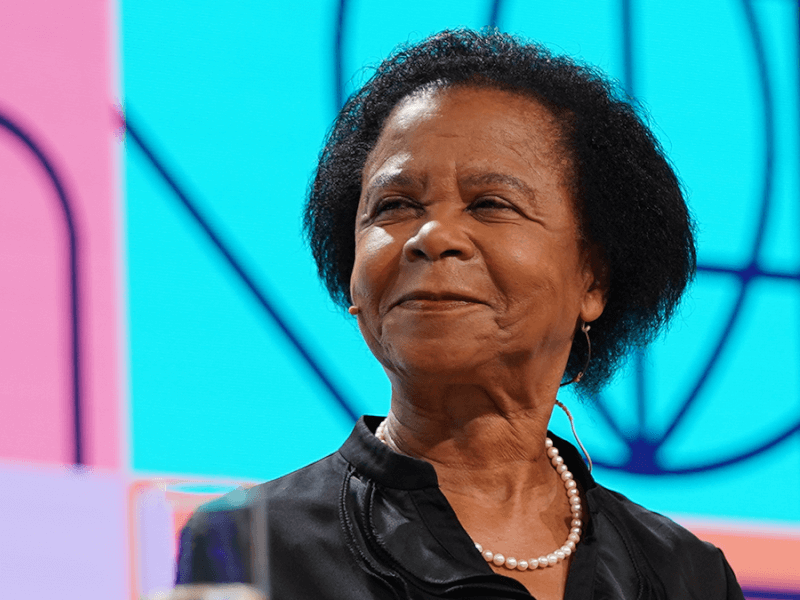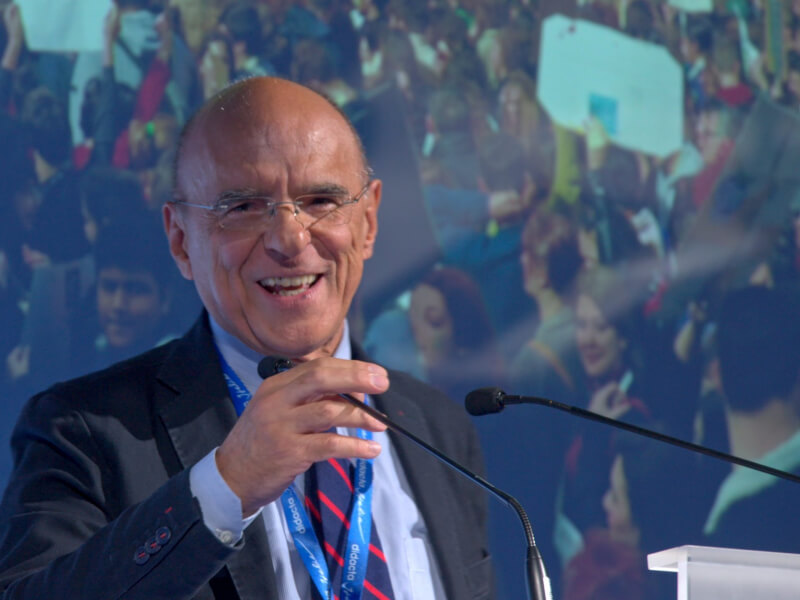20 November 2023 – What inspired you to join The Club of Rome?
Sustainability and climate change are political matters, and I have always been a political activist. But the choice of The Club of Rome was an accident of history. I happened to live in Cape Town when Gunter Pauli, who grew up professionally in The Club of Rome, introduced me to the organisation. At first, I thought it was irrelevant to me because The Club of Rome was perceived to be made up of old, white European and American men. While those are the historic roots of The Club of Rome, we have grown beyond that. Gunter talked to me about some of the things the organisation was beginning to do. So, I got interested and joined.
What did you aspire to change when you become co-president?
My aspiration was to change the culture of The Club of Rome from white male Eurocentrism to a more diverse pluri-versal view of the world that celebrates the richness diversity brings to institutions and the world to make ours a better world. I was perturbed by the gross under-representation of Africa – the Mother Continent. I am glad that the number of Africans and their voices have grown to shape the thrust of the work of The Club of Rome.
What would you say are the most pressing sustainability challenges facing the world today, and how can we address them in a transformative way?
I believe humanity’s inability to understand and learn from Mother Nature about how living systems work and change is the greatest challenge facing the world today. Human beings are inextricably linked to one another within the web of life, and we can only survive through understanding that human beings are part of nature, not apart from it. The focus must be on promoting greater equity and wellbeing for all.
How can African countries balance sustainable development goals with the pressing challenge of climate change?
African countries need to move away from emulating Western development models and adopt holistic approaches to development. These must be in line with indigenous knowledge that values ecosystems. We must work towards promoting equity and wellbeing for all by embracing the values that nurture servant leadership and treating one another with respect and dignity.
How can we navigate the challenges of creating effective partnerships between governments, businesses, and civil society in promoting sustainable development?
Partnerships are possible when we have a consciousness of the interconnectedness and mutual dependence that exist between all of us, and a realisation of the value of pooling resources rather than working in competition. Consciousness of the essence of being human which is our interconnectedness and interdependence would promote values that nurture serving others and promoting wellbeing for all.
What does a shift from a consumption-based economy to a needs-based economy entail, and how can it be achieved?
We must return to the essence of what it means to be human and fill the void inside that drives over-consumption through love, solidarity, and better relationships. We need to stop chasing material benefits and embrace our cultural and artistic sides as enough in of themselves. An increasing consciousness of the importance of valuing intangibles would drive us towards a more joyous and fulfilling life.
As you come to the end of your term as The Club of Rome co-president and looking towards the future, what gives you hope for creating a more sustainable world, and what areas of progress do you see as most promising?
Looking towards the future, I have hope for the creation of a more sustainable world through a human revolution called for by Aurelio Peccei, the founder of The Club of Rome. A Human Revolution is all about closing the gap between knowing and doing. We can achieve a human revolution by traveling inside ourselves to find out our essence – who we are. This essence would be the leading edge that drives our engagements in working together to create global equity for a healthy planet.
I believe that young people are leading the charge in liberating themselves and the future they desire. The establishment of the Youth Leadership and Intergenerational Dialogues Impact Hub is one of the proudest achievements for The Club of Rome. We have created conditions for young people to shape the future they want, which is the future we yearn for.
What would you say has changed in the last five years at The Club of Rome and what could you single out as your biggest achievement?
Over the past five years, there have been many changes at The Club of Rome. One significant change is the increase in diversity among its members, who come from different parts of the world, bringing new perspectives and views to the organisation. Having two women as co-presidents was a seminal moment in the history of The Club of Rome. With several other members we published a paper entitled – New Narratives of Hope that is gaining popularity in influencing changing business practices in companies such as Mastercard Africa. Additionally, the Afrik Akili Declaration has put Africa’s own vision of itself on the map. Young people from Latin America were inspired by the Afrik-Akili and forged the Costa Rica Declaration to express their dreams of the Latin America Region. These achievements have come through the power, energy, creativity, and insights of young people. The Club of Rome aims to support these younger generations in shaping the future we want.
What would you like to see happening in The Club of Rome, and how would you like the legacy to continue?
The Club of Rome should strive to be even more diverse. We need to bring in perspectives from other continents that constitute Most of the World to shape our perspectives. This will enhance the organisation’s role as a thought leader that advances an understanding of how living systems work and change, while adding value to what it means to be human and to celebrate the beauty of Mother Earth and her abundance.






